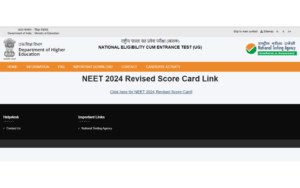
Digital Addiction in UAE: Tackling the Alarming Teen Rise
Introduction
In today’s digital age, the excessive use of social media among teenagers has become a pressing concern. Experts have equated the impact of this addiction to that of drug addiction, emphasizing the need for immediate action. This article delves into the detrimental effects of teenagers’ digital addiction, the role of parents as role models, the importance of co-viewing, and the necessity for comprehensive education on online safety and character development. Let’s explore why addressing this issue is paramount for the well-being of our youth.
The Escalation of Digital Addiction
Teenagers are devoting an alarming 6 to 12 hours daily to social media, surpassing the recommended screen time. This overindulgence disrupts their sleep patterns, resulting in a sleep deficiency comparable to the severity of drug addiction. Driven by the fear of missing out, adolescents even resort to sleeping with their phones, awakening in the middle of the night to check messages, videos, and the number of likes on their posts. This growing dependency has transformed screen time into a compulsive behavior, demanding immediate intervention.
The Insights from Expert Perspectives
Hanan Ezzeldin, the esteemed founder and CEO of The Family Hub, highlights the significance of parental influence and engagement with children. Ezzeldin stresses that parents must lead by example, mindful of their own social media habits. If parents regularly showcase mundane aspects of their lives, children are likely to mimic this behavior. It is essential to engage in open conversations with children, including discussions about the perils of bullying. Ezzeldin also identifies the allure of instant gratification as a driving force behind screen addiction.
Furthermore, co-viewing emerges as a valuable tool for parents. By watching cartoons and songs with their children, parents can actively participate in their media consumption. This practice facilitates dialogue and strengthens the parent-child bond. However, it is crucial to establish boundaries, ensuring that mealtimes remain device-free to promote quality family interactions.
Incorporating Digital Well-being into Education
Recognizing the pervasive nature of digital platforms, Hanan Ezzeldin asserts the need for schools to adapt their curricula accordingly. With students spending approximately 5 to 6 hours engaged in digital activities daily, it becomes imperative to educate them about online safety and address the issue of bullying. Schools can foster community involvement by sharing videos highlighting the significance of community service. Ezzeldin emphasizes that education should extend beyond conventional subjects like science and math, incorporating a comprehensive curriculum that encompasses social media safety and character development.
Drawing parallels between physical and digital environments, Ezzeldin underscores the importance of not leaving children unattended in the online world. Just as parents would not abandon their children in a mall, they should not neglect their digital well-being. As the first generation of digital parents, it is our responsibility to guide our children, allowing them to make mistakes while providing support and guidance when needed.
Promoting Safe Digital Spaces
Kevin Morgan, head of trust and safety at TikTok Europe, Middle East & Africa, emphasizes the significance of content classification tailored to different age groups. By implementing such measures, platforms can safeguard the digital and mental well-being of teenagers. Ensuring age-appropriate content and promoting responsible online behavior are crucial steps in creating safer digital spaces for adolescents to explore.
Conclusion
The escalating issue of teenagers’ digital addiction necessitates immediate attention. With adolescents spending excessive hours on social media, the adverse effects on their sleep patterns and overall well-being are comparable to drug addiction. By becoming positive role models, engaging in open discussions, co-viewing, and incorporating digital well-being into education, parents and schools can address this pervasive problem. Furthermore, content classification and responsible platform practices play










